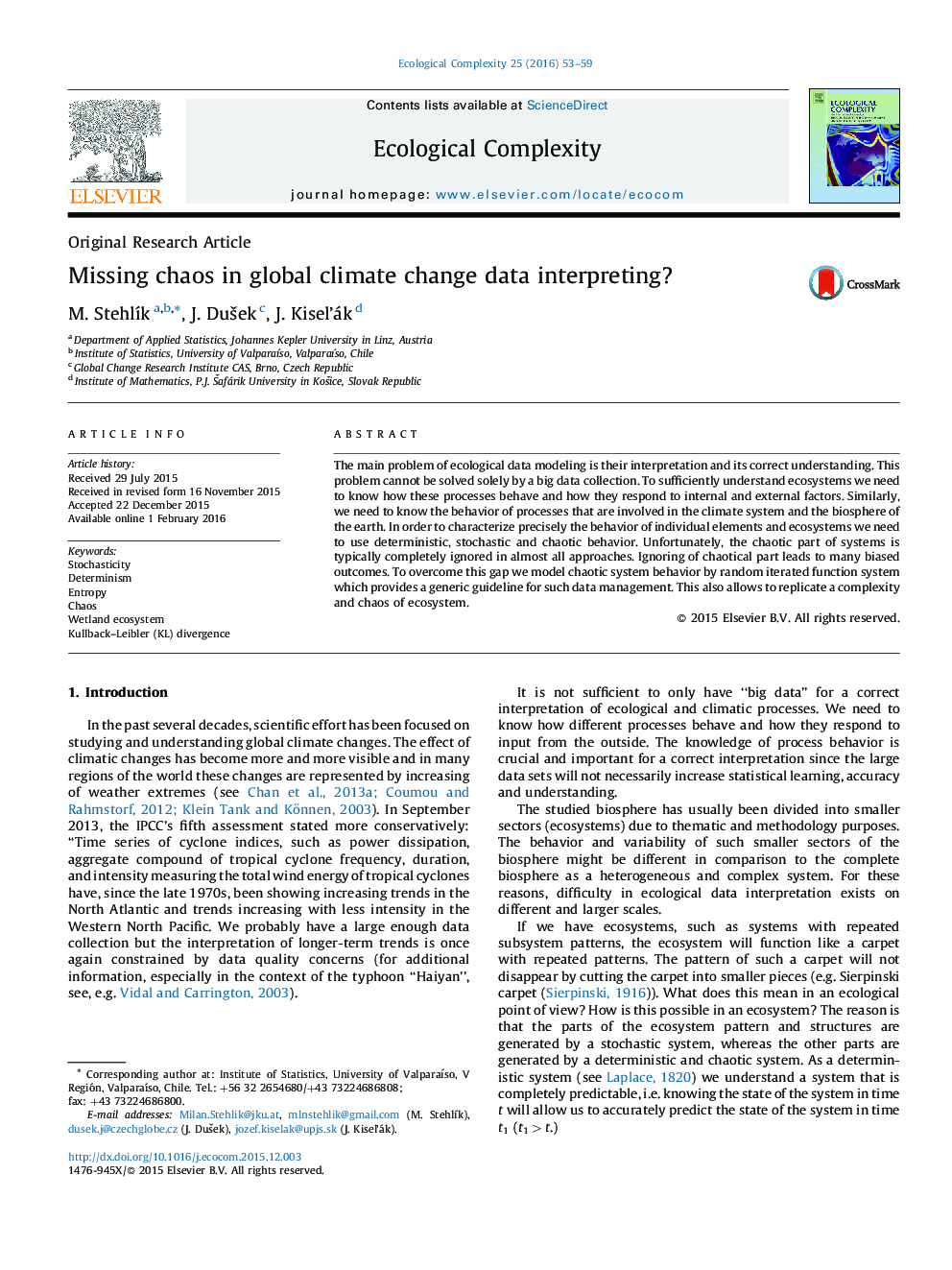| کد مقاله | کد نشریه | سال انتشار | مقاله انگلیسی | نسخه تمام متن |
|---|---|---|---|---|
| 4372393 | 1617089 | 2016 | 7 صفحه PDF | دانلود رایگان |
• The ecological measurements contain chaotical, statistical and deterministic parts.
• We present the global climate change from this perspective.
• Chaos is important in understanding of the global climate change.
• The methane emission are an example of deceptiveness regarding a complete certainty of the climate change and difficulty of its interpreting.
• The amount and possible measuring of huge data sets does not necessarily increase the information, since deterministic, stochastic and chaotic parts are present.
The main problem of ecological data modeling is their interpretation and its correct understanding. This problem cannot be solved solely by a big data collection. To sufficiently understand ecosystems we need to know how these processes behave and how they respond to internal and external factors. Similarly, we need to know the behavior of processes that are involved in the climate system and the biosphere of the earth. In order to characterize precisely the behavior of individual elements and ecosystems we need to use deterministic, stochastic and chaotic behavior. Unfortunately, the chaotic part of systems is typically completely ignored in almost all approaches. Ignoring of chaotical part leads to many biased outcomes. To overcome this gap we model chaotic system behavior by random iterated function system which provides a generic guideline for such data management. This also allows to replicate a complexity and chaos of ecosystem.
Journal: Ecological Complexity - Volume 25, March 2016, Pages 53–59
